All my youth I spent in the sea. My cousin and me used to take the boat across to Mahim, have a cup of tea, or row to Dadar, and then have a swim in the middle.
Memory Keepers Of Bandra is a project that documents oral history of the senior generation who live or have lived in Bandra, Mumbai. Through their lived experiences, it pieces together history, geography, culture and community, and offers an insight into the neighbourhood.
This is the story of Tucky Christopher Curzai. And his memories of living next door to the sea.
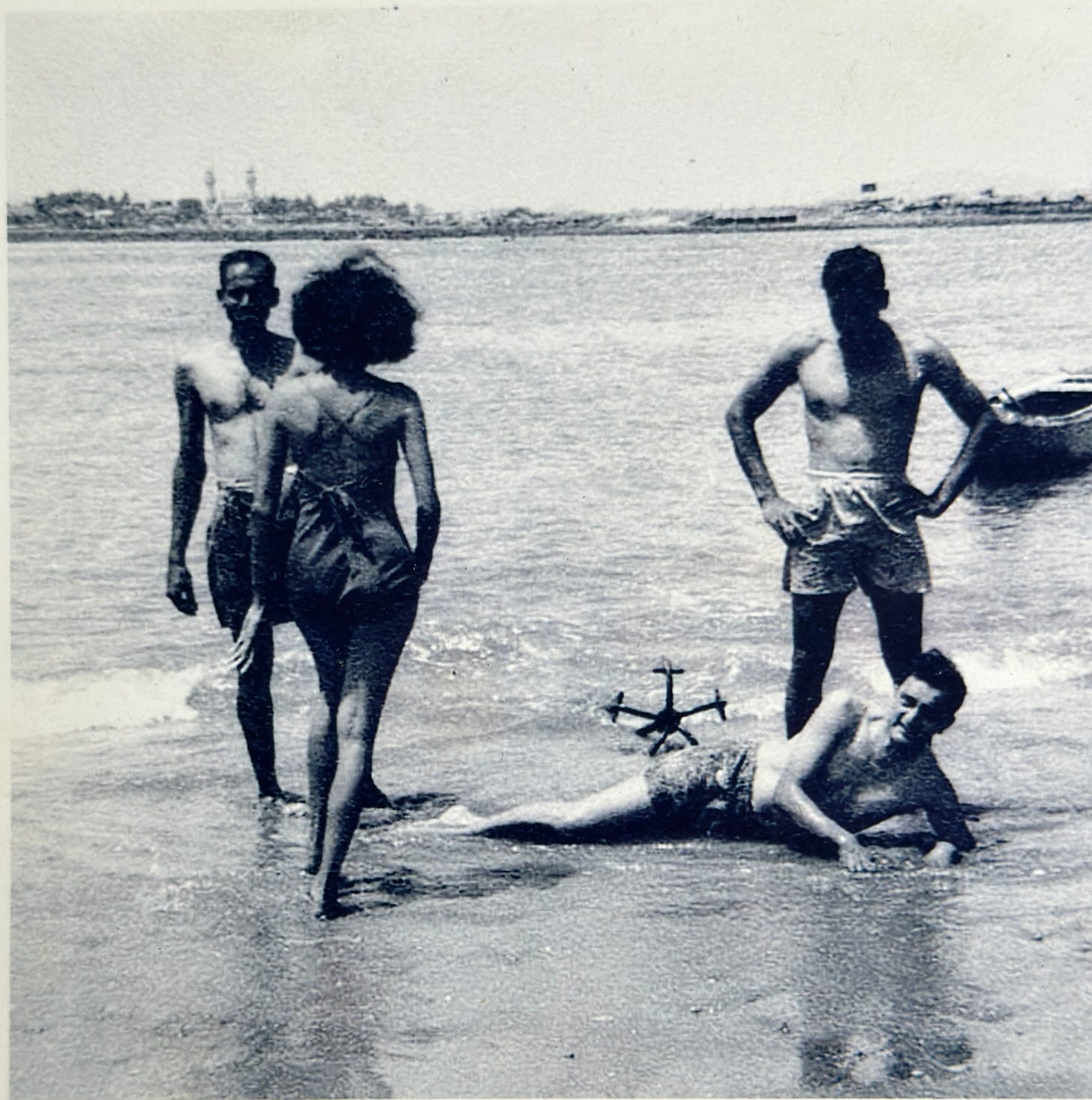
Before I start with Tucky’s story, a little bit of geography. Tucky grew up in Corona bungalow (the thick blue dash on the map on the left) which sits in the Pioneer Hall compound at St John Baptist Road. Along the compound wall of their home ran the sea and a strip of beach.

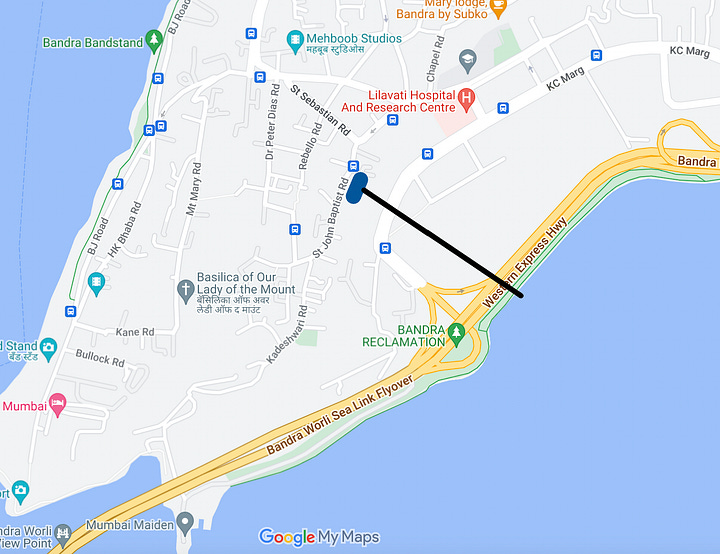
When I met Tucky, I sensed a deep connection to the sea. A connection that Joe, the musician and trumpet player from Bazaar Road had also spoken about. Tucky shared what it was like to live by the sea.
We had a beach in front of our compound wall. And we had a boat, we had nets, and we’d go fishing. I used to love going into the sea, every little chance I got. I’d take the boat and go around, as the tide was going down. My cousin and me used to go shooting, in the winter. You get all the migratory birds, Curlews, Snipes and we had a 12 bore gun we used to go out with. And as the tide came up, we’d sit on the rocks, so with one shot we used to get a dozen birds, and then have a barbeque.
Our life was always in the sea, and my life especially, always. I used to go fishing with my uncles and walking on those sharp rocks covered with oyster shells. My feet were like leather, I could walk barefoot on all that, carrying the fish that we caught.

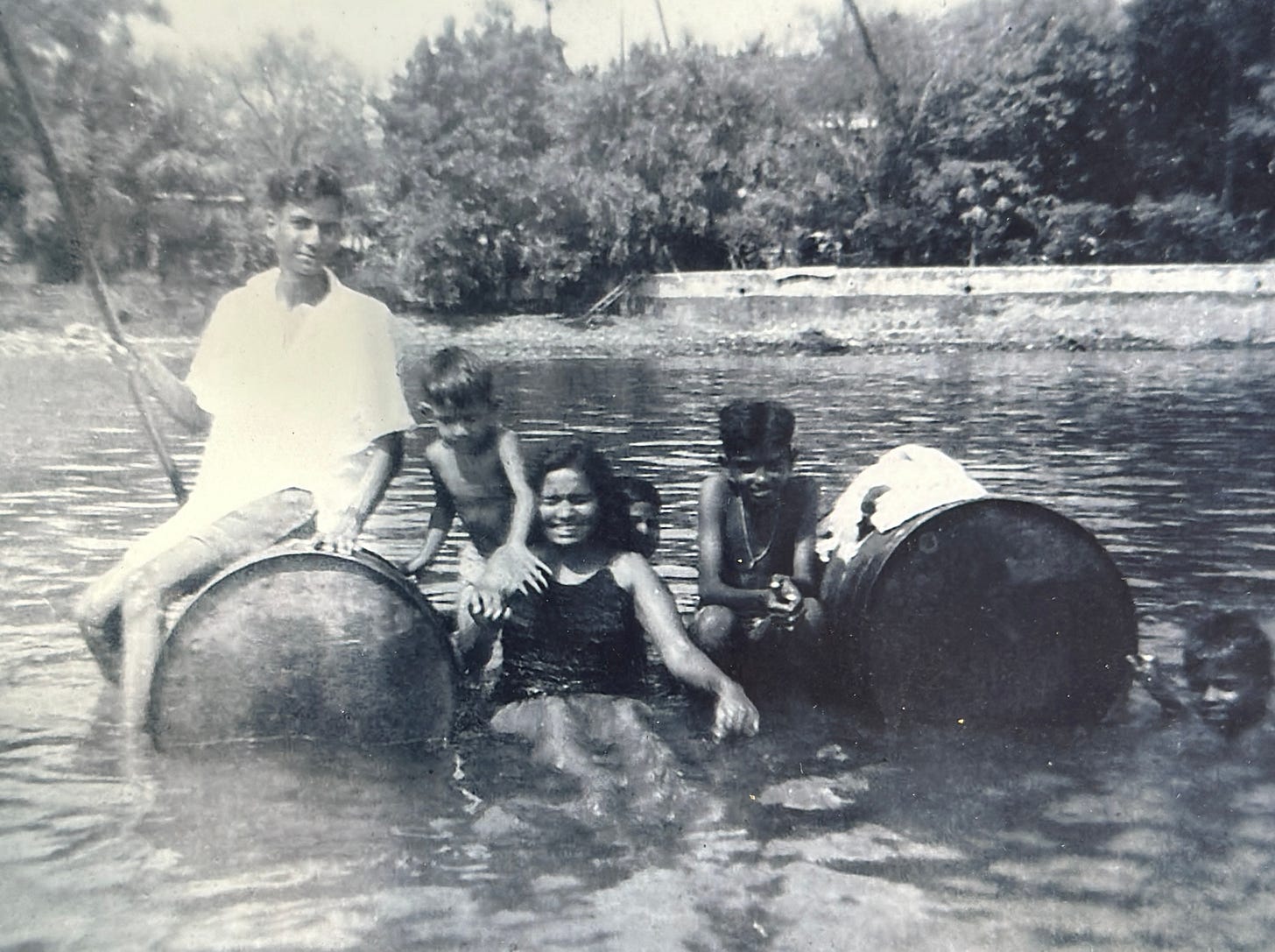
I listen to Tucky and I’m astounded when he tells me how clean the water at Mahim Bay was. And how they used to find corals in that water. I think you should hear Tucky describe what it was like hanging out and fishing in those waters.
When I’m talking to Tucky, his son Gary, is around. And at some point when Tucky is reminiscing about the sea, Gary shares something that gets me thinking. He talks about generational trauma caused by reclamation. A topic that’s never really been addressed. The Curzai family is probably among the oldest families in Bandra, and every single member had a deep connection with the sea. It runs in their veins. And then reclamation happens. And overnight they are cut off from the sea, they watch the land being filled, and sea they love, being cut off from them. Imagine you lived in the mountains and one fine day you are told it’s going to be moved away from you.
Gary tells me his generation loves swimming and the sea, but feels disconnected from their roots. Tucky is far more pragmatic. He walks us to the wall and talks about how as the reclamation started closing in, they’d keep jumping into the sea from here. Till one day the earthmovers moved in to close off the last patch of the sea next to their wall, and he and his friend Jeffrey went for a last swim, before they lost the sea forever.
Tucky talks about the geography and the timeline of the reclamation in the video below.
What also happened was all the fishermen along Chapel road and Bazaar road had private spots where they used to fish. Tucky shows me the document where the fishing stakes were sold/leased to a particular family, and you could only fish there. When reclamation happened, those fishing rights also disappeared with the sea. Leaving the fishermen with nothing.
From 1971 Bandra started to change. The first tall building in that area Rose Minar came up then. Before that it was all bungalows in Bandra, And the reclamation also started around the same time. Though for almost ten years, the place just stood like that. With nothing, no development. Boys used to play football, and they had some exhibition there. Then from 1985 onwards I think, they started building in that reclaimed land.
Even today, early on a Sunday morning if you walk down Chapel Road, or even St John Baptist Road, it feels like somewhere in all the change, there’s a sea side village tucked away in the bylanes.
Tucky shares what it was like when he was a kid.
From our house, we could walk all along the sea, right up to Bazaar Road. There were patches of beach all along. And I remember my father used to take us, behind the mutton shops where there was a big beach sort of thing. And we used to have the East Indian Festival that used to be organised there. On Easter Sunday, we used to have races in the sea. And we used to leave ducks in the sea. And whatever you caught, you could take it. It was fun.
When Tucky is describing this, at some point Gary turns to me and says, ‘It sounds like paradise, beautiful nature and trees and beaches. And parties on the beach. It just sounds like something you can't even imagine.’
Here’s Tucky describing a Bandra, when the living was easy, and fun.
There is so much history that I learnt at the Curzai home, which is why this is only Part 1 of their story. Till then here are some more pictures for you.
(All these back and white photos from back then were probably shot by the late Captain Melville Pais. In fact in the visual above where there are a number of photos laid out on the table, the top right hand one, shows a young lady sitting on the famous wall. That’s Juilet, Captain Pais’s wife.)
No part of this writeup, photographs or videos, can be reproduced or used without permission. Thank you Tucky and Gary, for trusting me with your story. Tucky, a special thanks for sacrificing your afternoon siesta :)
Also thank you to my biggest supporters in this project, Anirban and Huzefa, for all the help with shooting and recording. Couldn’t do it without the two of you.
Thank you to everyone reading this and making it till here. Here’s something for you. Since I mentioned Joe earlier, here is a video where he talks about Bandra as it used to be. You’ll find the entire article with videos on my substack home page, look for The Music Man Of Bazaar Road.





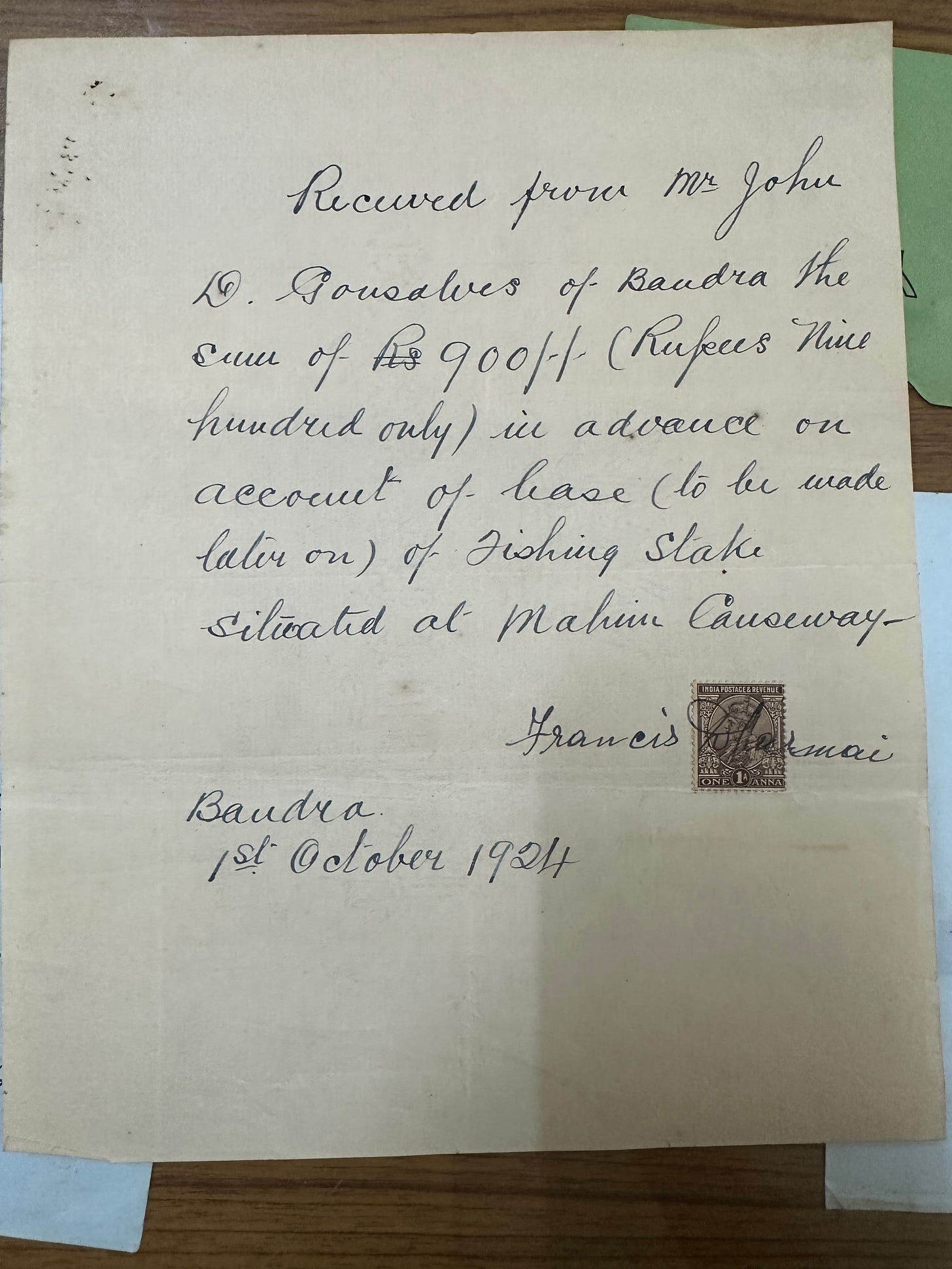


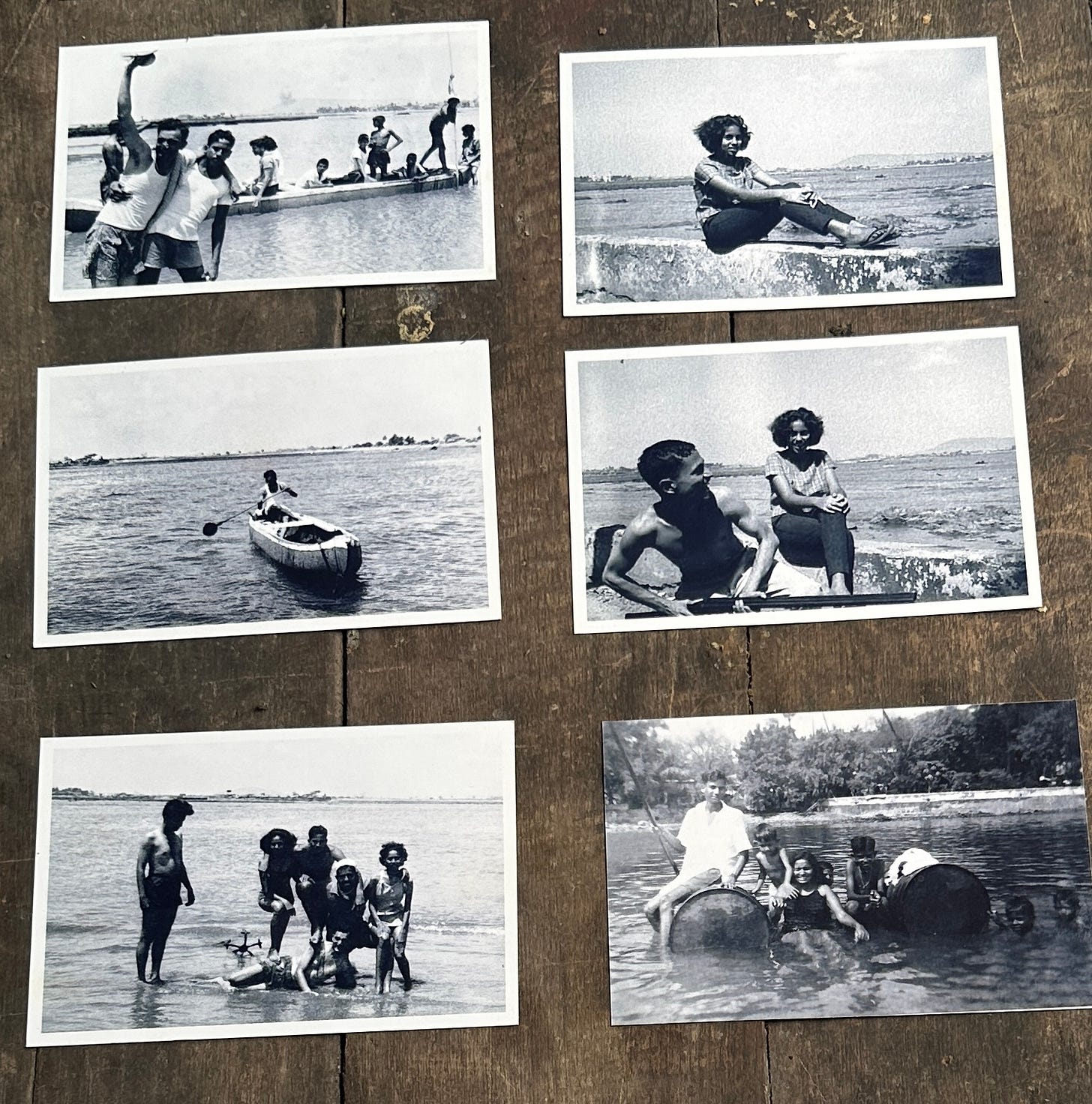
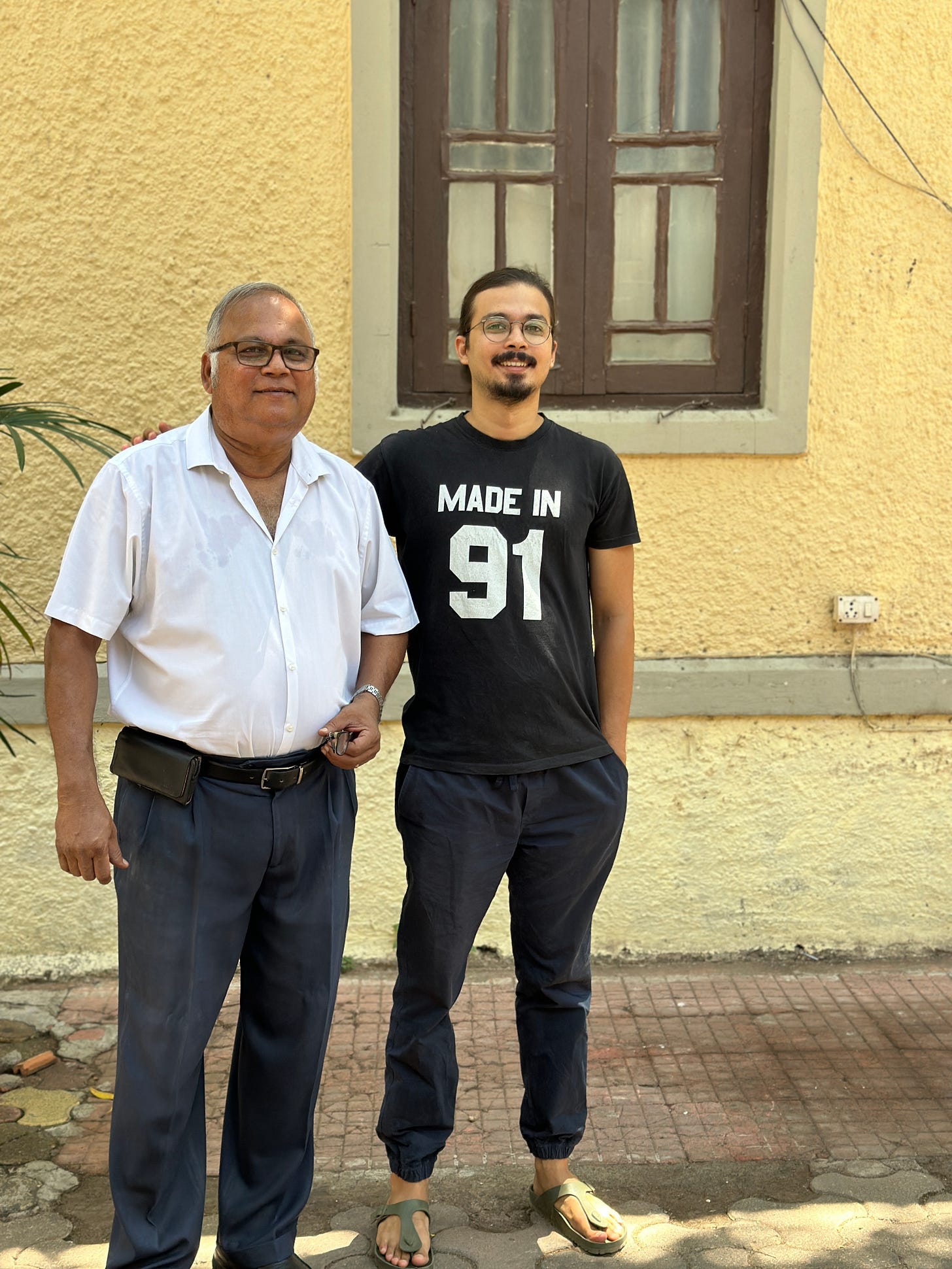
These memories give me goosebumps and bring tears to my eyes. I was born in '78 in Bandra, and what we experienced then compared to what we see now is truly disheartening. Our children no longer have open spaces to play. The green and blue Bandra we once knew is gone. I believe my generation was the last to truly enjoy Bandra and play freely in the open. The fun and spirit that people had back then are hard to find in today’s Bandra. Now, the lost love of Bandra lives on only in our hearts and memories, until we walk away from this life."
Lovely. Feel so wistful thinking of what was lost as the city kept expanding. Loved the photo of them floating on barrels and jumping directly into the sea from their wall. This article really brought reclamation to life for me. How everyday peoples lives changed overnight.